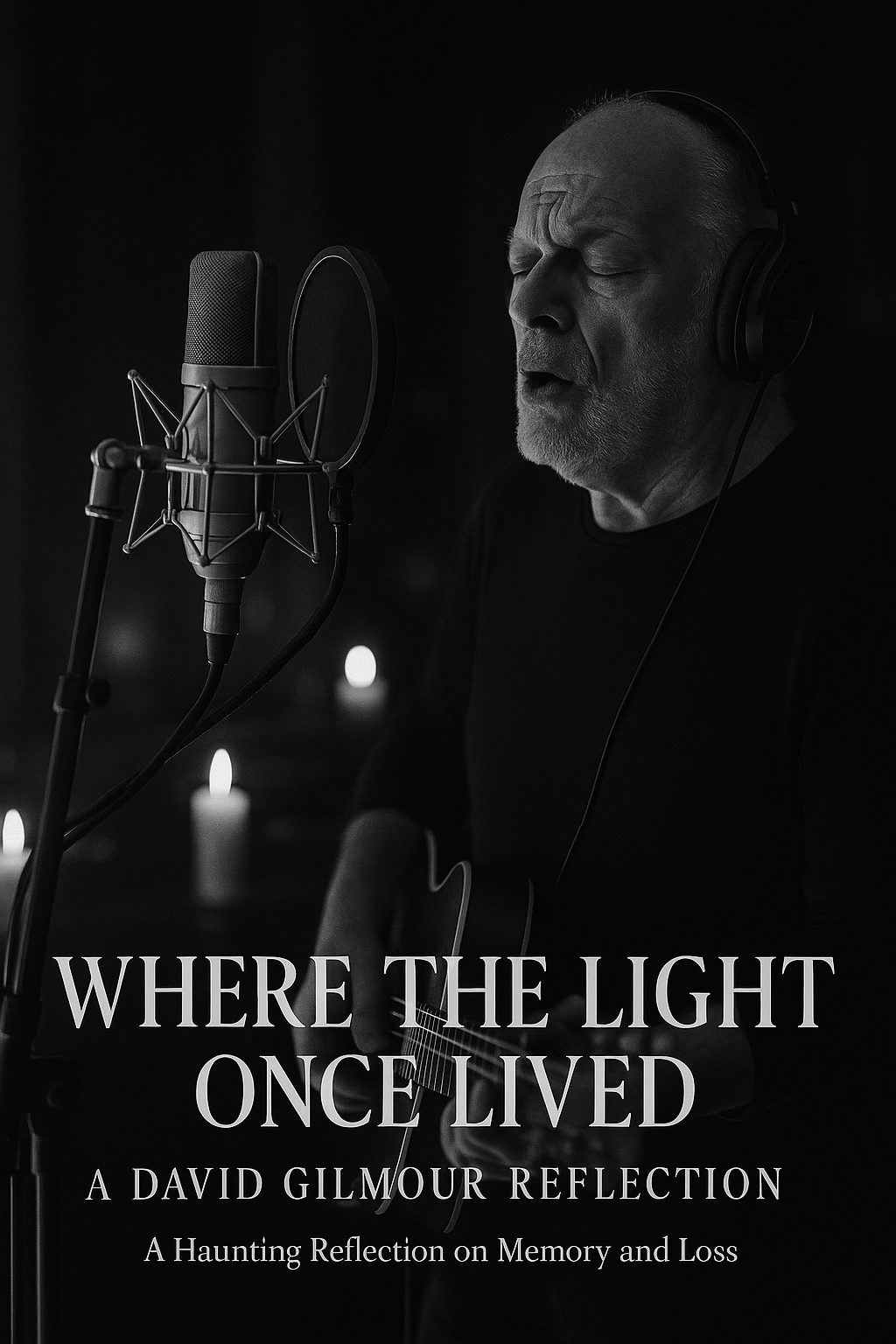David Gilmour, the legendary voice and guitar behind Pink Floyd’s most iconic moments, has returned with a deeply personal and emotionally arresting single titled “Where the Light Once Lived.” Released without fanfare, the track instantly captured the attention of fans and critics alike with its haunting textures, philosophical lyrics, and aching sense of time passed.
The song opens in near silence, with only a faint echo of ambient synth and the distant chime of a single note — a sonic metaphor for absence. Gilmour’s guitar eventually enters, not with his trademark soaring solos, but with gentle, ghostlike phrases that drift like memories in fog. It’s clear from the first few seconds that this is not just another release — it’s a reckoning.
Gilmour’s voice, now softened by age and wisdom, delivers lyrics that are intimate and evocative: “I watched the sun forget our names / shadows lengthen, nothing stays.” Each line feels carved from grief and nostalgia, a reflection on loss not just of people, but of moments, places, and selves. It’s the sound of someone who has lived through decades of triumph and heartache, and now chooses to whisper rather than shout.
The title itself, “Where the Light Once Lived,” encapsulates the essence of the song — a longing for the radiance that once illuminated the past. Though it doesn’t directly reference any one person or event, many believe the track is a tribute to Gilmour’s longtime bandmate Richard Wright, who passed away in 2008, or perhaps even a meditation on the fading echoes of Pink Floyd itself.
Musically, the arrangement is sparse and deliberate. Gilmour’s signature tone remains — fluid, mournful, almost vocal in its phrasing — but it’s restrained, letting silence and space play a central role. The track includes subtle piano elements and atmospheric production that recalls the later Floyd era, particularly The Division Bell and On an Island.
In an interview accompanying the release, Gilmour remarked, “This song is about the light we carry and what happens when it dims — in relationships, in life, in time itself. It’s not about despair, though. It’s about remembering.” That thread of remembrance — tender, melancholic, and oddly comforting — runs through every note.
The music video, released on Gilmour’s official YouTube channel, deepens the emotional gravity of the track. It features faded film reels, forgotten rooms bathed in golden light, and slow, dreamlike camera movements through abandoned places. At one point, a projector plays vintage footage of Gilmour and his bandmates, the images flickering and fraying like memory itself.
Critics have praised the single as one of Gilmour’s finest solo efforts in recent years. Mojo described it as “an elegy wrapped in melody,” while Uncut called it “a masterclass in emotional minimalism.” Fans on social media have shared personal reflections, connecting the song to their own experiences of love, loss, and aging — a testament to Gilmour’s timeless ability to resonate.
While there has been no official word on whether “Where the Light Once Lived” is part of a larger album or Gilmour’s rumored final studio project, speculation is rampant. Some sources close to the artist suggest that a collection of new songs — all similarly meditative in tone — may be on the horizon, perhaps set for a 2026 release.
If true, this song may be the opening note of a farewell opus — not a grand finale, but a gentle departure. Gilmour has never chased trends or spectacle; his power lies in patience, melody, and emotional depth. And this single proves he still knows exactly when to hold back — and when to break your heart with just a bend of a note.
As listeners absorb the haunting beauty of “Where the Light Once Lived,” they are reminded that even in silence, even in shadow, music remains a bridge to what we’ve lost — and what we still carry. David Gilmour, once again, gives us not just a song, but a place to feel, reflect, and remember.
And in that sacred place, the light may no longer live — but it still lingers.



